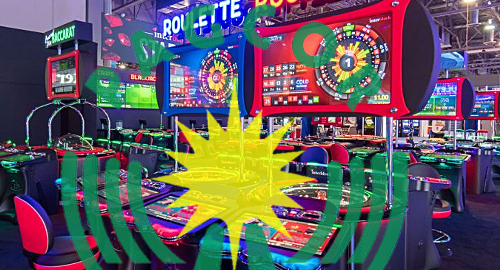 The Philippines’ gaming industry enjoyed double-digit growth in 2017, thanks to gains in every sector except retail eGaming venues.
The Philippines’ gaming industry enjoyed double-digit growth in 2017, thanks to gains in every sector except retail eGaming venues.
This week, the Philippine Amusement and Gaming Corporation (PAGCOR) released its Q4/FY 2017 official figures, the first such update since the release of the Q2 2017 figures last October, which was itself the first time in nearly a year that PAGCOR had deigned to update the public on its accounting.
Total gaming revenue in 2017 improved 11.6% year-on-year to P176.5b (US$3.37b), of which the land-based casino sector accounted for P152.5b (+13.8%). The nascent Philippine Offshore Gaming Operators segment contributed P3.13b last year, a figure PAGCOR recently forecast would double in 2018.
The Philippines’ casino industry is divided into two segments: those venues directly under PAGCOR’s control (although these are slated for imminent privatization) and those operated by third parties under a PAGCOR license.
PAGCOR casinos reported their 2017 revenue rising 8% to P34.4b. Of this, P11.75b came via non-junket mass market and VIP gaming, which was essentially flat year-on-year. Electronic gaming machine (EGM) revenue was also flat at P14.4b. By contrast, junket-derived revenue shot up nearly one-third to P8.2b.
PAGCOR-licensed casino operators reported revenue of P118.2b, up 15.6% from 2016, with the overwhelming bulk (P109.4b) coming from casinos in Manila’s Entertainment City gaming zone. The regulatory upheaval that rocked Jack Lam’s world in 2016 resulted in Clark Freeport-based casino revenue falling by nearly half to P7b.
The licensed casinos’ non-junket mass and VIP tables reported revenue rising 12.7% to P48.1b, while junket-derived revenue rose a more modest 7.8% to P33.6b. The real stars were EGMs, which shot up 28.5% to P36.5b, likely due to the opening of the Okada Manila resort, which boasts over 2,900 EGMs, significantly more than any other Entertainment City operator.
The beleaguered eGames sector – which offers online gambling terminals from retail outlets that (unlike the POGO sites) are accessible by local residents – suffered a modest 1.7% revenue decline to P23.6b. Sports betting enjoyed a nearly 50% rise to P738m, while eGames and eBingo reported small declines.